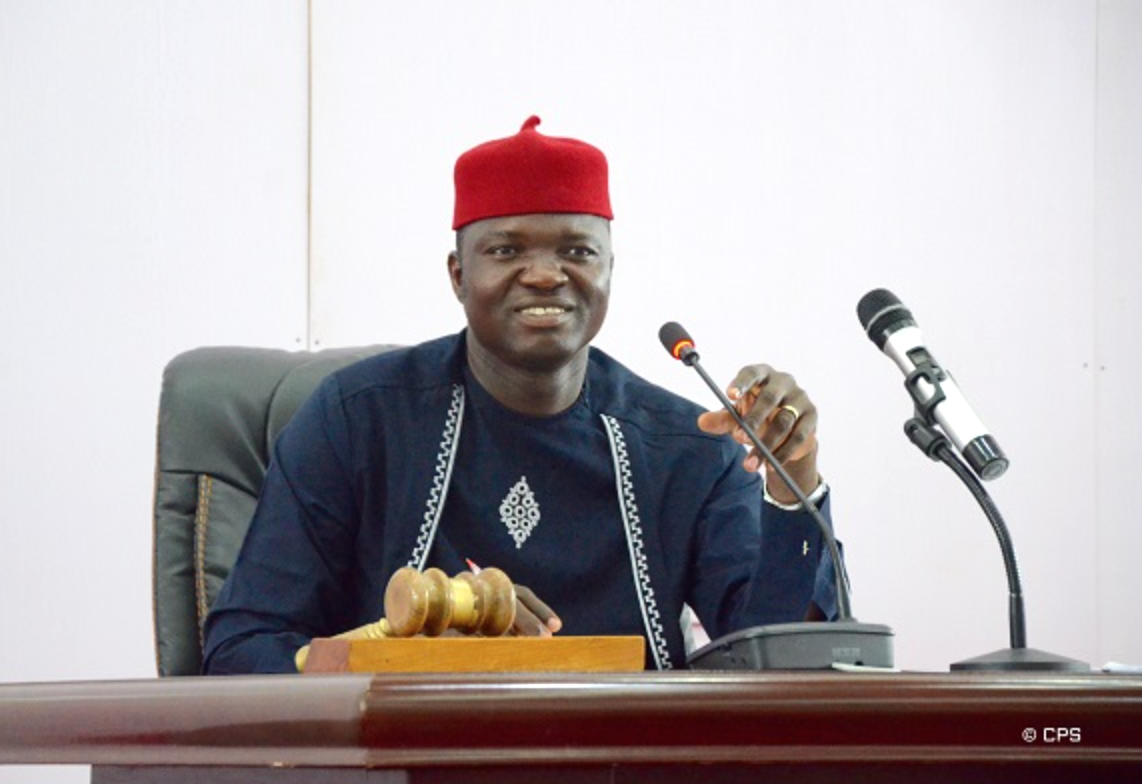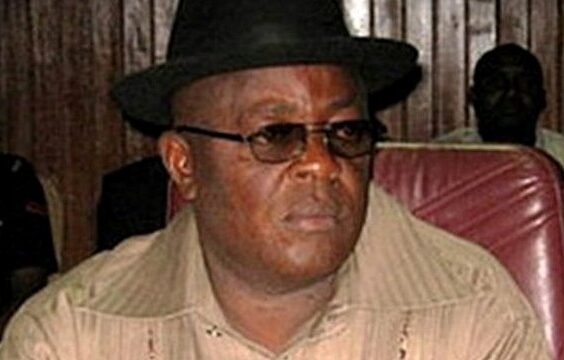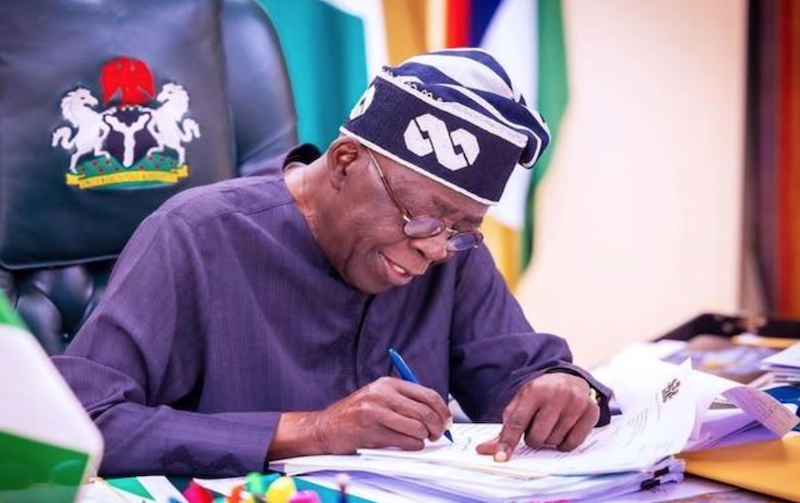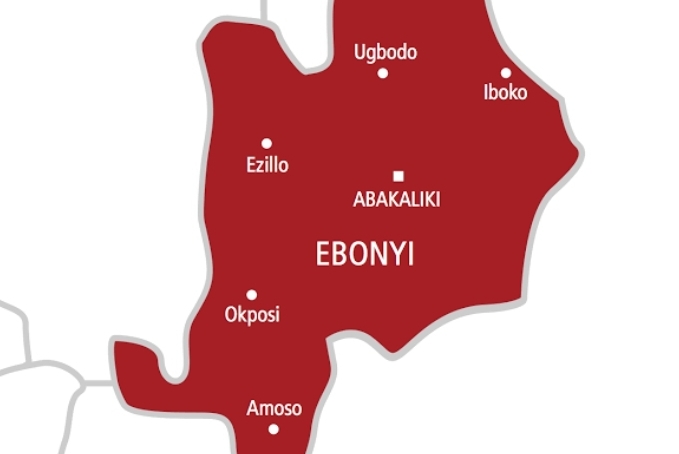By Jeff Ukachukwu
Ebonyi State is experiencing a wave of transformation under the leadership of Governor Francis Nwifuru. His administration is channelling efforts into key sectors such as infrastructure, education, and agriculture, ensuring that the state continues on its trajectory of progress and development.
With a deep understanding of the challenges faced by the people, the governor has embarked on ambitious projects aimed at not just addressing immediate needs but also laying the foundation for long-term growth and prosperity. His leadership is defined by a sense of urgency, ensuring that Ebonyi State does not lag in the march toward development.
By implementing policies that drive infrastructural advancements, human capital development, and economic empowerment, the administration ensures that the people of Ebonyi State experience real and lasting change. Governor Nwifuru’s leadership is results-driven, emphasizing efficiency and impact rather than unnecessary rhetoric. His vision is clear: to build a self-sustaining economy where opportunities abound for all citizens and the state stands as a model of progressive governance in Nigeria.
Infrastructure development has taken centre stage as the government strives to connect urban and rural areas, creating seamless access to markets, businesses, and essential services. With over 700 kilometres of roads under construction or completed, Ebonyi State is witnessing a significant improvement in transportation. Among the completed projects are the Ishielu Water Works Road, Nnorom Street, and the Udude – Ukwuakpu Street, while ongoing projects such as the 23km Ezillo – Ezzagu Road, 10.1km Ovudechi Iziogo Road, and the 7.23km Iziogo – Ndiokeeda Road continue to expand the state’s road network. The administration has also prioritized urban infrastructure by embarking on key road projects in major cities and towns, ensuring improved mobility and economic activity. Additionally, strategic bridges are being constructed to connect previously inaccessible areas, further boosting commerce and connectivity.
Beyond roads, the administration is investing in modern urban planning, ensuring that new layouts and residential areas are developed with proper drainage, water supply, and electricity. Smart city initiatives are being considered to improve traffic flow and create sustainable urban living spaces. The government’s commitment to infrastructure is not just about physical structures but about enabling an environment where businesses can thrive, and residents can enjoy an improved quality of life. Public transportation systems are also being revamped, with the introduction of modern bus terminals, street lighting, and road safety measures to enhance the ease of travel. These developments significantly reduce travel time, improve safety, and increase overall productivity in the state.
Education remains a powerful tool for development, and Governor Nwifuru’s administration is investing heavily in both basic and tertiary education. In the primary and secondary education sector, 39 model secondary schools are under construction, each designed with modern classrooms, laboratories, examination halls, and administrative offices. These schools are equipped to provide students with a well-rounded education, incorporating practical skills to complement theoretical learning. Additionally, six pilot primary schools are being built with state-of-the-art facilities to enhance the learning experience for young pupils. The government is also addressing the shortage of teachers by recruiting 1,000 new educators, ensuring that students receive quality instruction. To further enhance learning, Ebonyi State has distributed free textbooks, notebooks, and laptops to public schools, integrating technology into education and preparing students for a competitive world.
The government is taking bold steps at the tertiary level by establishing the University of ICT in Oferekpe, Izzi, and the University of Aerospace Engineering in Ezza. These institutions will position Ebonyi as a hub for specialized learning, equipping students with critical skills for the future. The institutions are expected to attract students from across the country, boosting Ebonyi’s reputation as an educational centre. Additionally, the state’s scholarship program provides opportunities for higher education, with 300 students sent abroad for postgraduate studies and 700 pursuing master’s and doctoral degrees locally. The ambitious goal is to graduate 8,000 beneficiaries by 2031, ensuring that Ebonyi produces highly skilled professionals in various fields. Furthermore, collaborations with international institutions and research centres are being explored to place Ebonyi’s higher education sector on the global map. This investment in education ensures that Ebonyi’s youth are not just job seekers but job creators, driving innovation and development within and beyond the state.
Recognising the link between education and employment, the government also integrates skill acquisition programmes into the curriculum. Vocational training centres are being established to provide young people with hands-on experience in fields such as technology, agriculture, and entrepreneurship. These efforts will improve employability and encourage self-reliance and innovation among the youth. Special emphasis is also placed on STEM (Science, Technology, Engineering, and Mathematics) education, equipping students with the necessary skills to compete in the digital age.
Agriculture continues to be the backbone of the state’s economy, with Governor Nwifuru driving initiatives to boost food production and economic empowerment. Farmers have received 31,000 bags of fertilizer, alongside 2,960 units of farming equipment such as pumping machines, grinding machines, and cassava processing machines. The revitalization of the Nkaliki Hatchery is a game-changer for poultry farming, with 15,000 layers and 20,400 broilers raised to supply the local market. This initiative is expected to create at least 2,000 jobs and strengthen the poultry industry in the state. The Ebonyi Fertilizer Chemical Company Ltd has been fully revitalized, ensuring a steady supply of fertilizers to support farmers. To further enhance agricultural productivity, the state has committed ₦200 million in counterpart funding to the International Fund for Agricultural Development (IFAD) for ongoing and future projects.
In addition to boosting food production, the government is exploring agro-industrialisation to enhance value addition and increase exports. Processing plants for rice, cassava, and palm oil are being upgraded to ensure that Ebonyi’s agricultural products meet national and international market standards. Investment incentives are also being offered to attract private sector participation in agribusiness, fostering an ecosystem where agriculture is not just seen as subsistence but as a profitable venture. Introducing modern irrigation techniques and mechanized farming practices further increases crop yields and ensures year-round food production.
Water resources play a crucial role in improving public health and supporting economic activities, and the state government has undertaken extensive water projects to ensure clean water access for residents. The Oferekpe Water Scheme has been reactivated to provide water to multiple local government areas, while the Abakaliki Water Scheme, Iboko Water Reservoir, and Ishiagu Water Scheme are undergoing restoration. The revitalization of the Ezillo Water Treatment Plant further guarantees a steady supply of clean water, addressing long-standing water scarcity issues and improving residents’ quality of life.
Healthcare is another priority as the administration strengthens health institutions across the state. 13 general hospitals have been equipped with new MRI machines and essential medical equipment to enhance medical services. The government has also recruited 195 medical personnel, increasing their allowances to ensure better retention and motivation. To facilitate healthcare delivery, 42 SUVs have been distributed to medical doctors, along with 20 ambulances and motorcycles for health officers serving rural areas. Additionally, ₦100 million has been allocated for immunization programs to prevent disease outbreaks and protect vulnerable populations. Public health awareness campaigns are also being intensified, focusing on cancer, sickle cell disease, and other critical health concerns.
Governor Nwifuru’s administration demonstrates a deep understanding of what it takes to drive progress. By focusing on infrastructure, education, agriculture, water resources, and healthcare, the state is laying a strong foundation for sustainable development. The roads being built today will connect farmers to markets, the investments in education will produce a skilled workforce, and the support for agriculture will ensure food security and economic empowerment. Ebonyi State is on a transformative journey, and its people are witnessing the tangible impact of purposeful governance. The future holds even more promise as strategic plans unfold, creating a resilient and thriving economy that benefits every citizen. With a clear vision and a commitment to progress, the state is poised to become a development, innovation, and prosperity model in Nigeria. The impact of these transformative policies will not only shape the present but will create lasting progress that will be felt by generations to come, securing Ebonyi’s place as a leading state in Nigeria’s economic and social advancement.
Dr Jeff Ukachukwu is a public Affairs Analyst and communication expert






